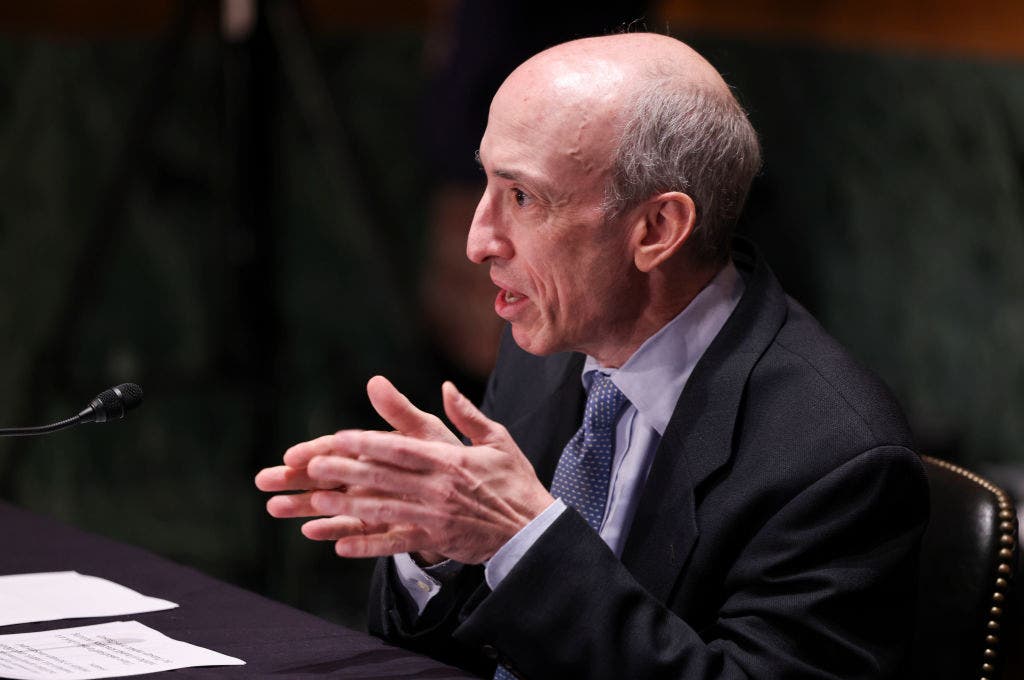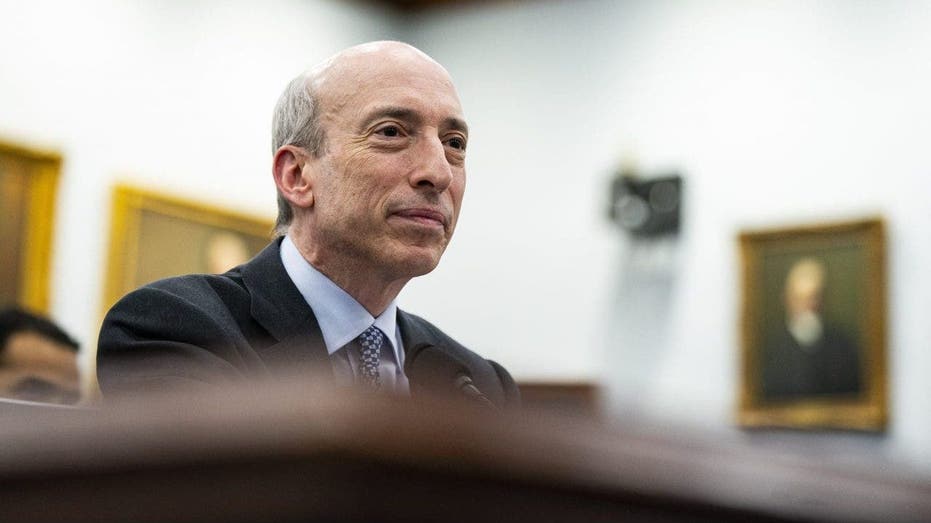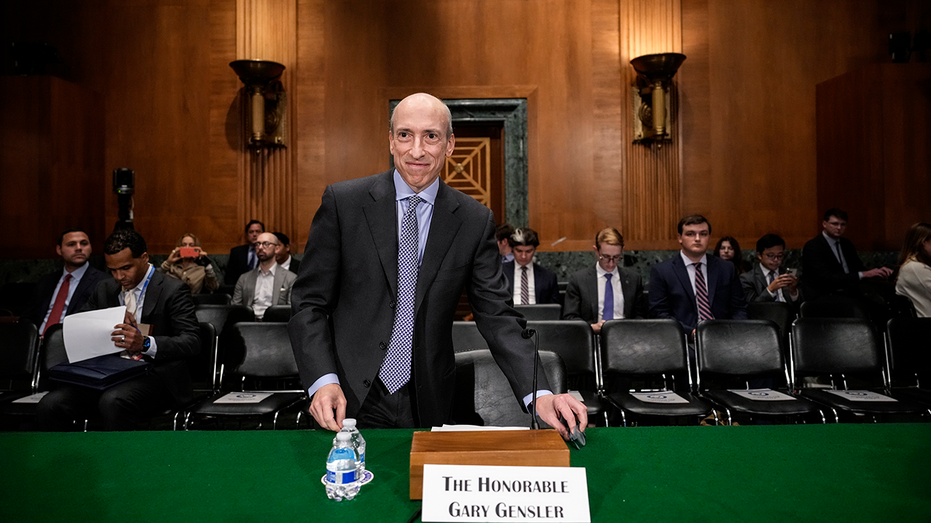Finance
Investing executive warns Americans that ‘unprecedented’ SEC regulations are coming for their pension funds

Leaders in the investment industry are warning retirees and investors that recently enacted SEC regulations will make it much more expensive and costly for managers to operate their funds and generate returns for America’s pension funds.
Bryan Corbett, the president and CEO of the Managed Funds Association (MFA), said the “unprecedented” regulatory landscape coming out of the Biden administration, specifically the Securities Exchange Commission (SEC), is “targeting alternative asset managers.”
Since Gary Gensler has served as SEC Chair, starting in April 2021, he has proposed over 20 rules focused on investment managers, Corbett said. These fund managers who invest in trillions of dollars in pension accounts are responsible for the retirement funds of millions of Americans.
“When you compare it to his predecessors who did maybe 20 during their entire terms, these rule proposals will have significant costs and consequences for both investors in our markets, as well as the competitiveness of U.S. markets,” Corbett explained.
The MFA represents the global alternative asset management industry of institutional investors that invest in pensions, non-profits and college endowments to raise capital, invest and generate returns for their beneficiaries.
WOKE CORPORATE GOVERNANCE OFTEN STEMS FROM INVOLVED INVESTMENT FIRMS: FORMER ANHEUSER-BUSCH EXEC
“MFA has more than 150 member firms, including traditional hedge funds, crossover funds, and private credit funds, that collectively manage nearly $2 trillion across a diverse group of investment strategies,” according to the organization’s website. “Member firms help pension plans, university endowments, charitable foundations, and other institutional investors to diversify their investments, manage risk, and generate attractive returns over time.”
“So, rather than promoting competition and more market participants, the SEC rules in aggregate are going to make our markets less competitive, as you have fewer funds,” Corbett said.
Corbett said the primary focus right now is on a rule called the private funds proposal, which “for the first time will have the SEC in the middle of negotiations between sophisticated fund managers and sophisticated investors like pension funds.”
“The SEC is looking to prohibit certain terms and conditions that we think exceeds its current statutory authority,” he added.
Corbett said there are also costs for alternative asset managers, who invest in pension funds, endowments and foundations, and are depended on to generate returns that fund retirements and college scholarships, but as a result of Chair Gensler’s rules, the investors will bear more costs and have less access to funds. He called on Congress to use its power in the rulemaking process.
“They [Congress] have oversight, they have the responsibility to hold the agencies accountable and we think it’s important that they use that oversight authority to review the rulemaking processes and make sure that the regulators are not exceeding their statutory authority,” he said.
INDIANA REPUBLICANS PUSH THROUGH ANTI-ESG INVESTING BILL
This year, President Joe Biden rejected a bipartisan bill that would have required investment fund managers to remain focused on providing the best return for their clients without taking into consideration a company’s ESG score that rates them based on their stances toward racial justice, climate change and LGBT issues when deciding where to invest money.
In addition, a Department of Labor rule that went into effect in January allows managers to factor environmental and social issues into their investment decisions for the retirement funds of more than 152 million Americans.
If the SEC regulations continue on their current trajectory, Corbett said MFA members involved in pension fund investing will have a harder time generating the returns they need to fund their pensions and business objectives for retirees.
“The funds will become more expensive, it’ll be a more competitive market and a pension fund will have less access and less ability to get into a fund, and they’ll have less choice as part of their portfolio allocation,” he said.

In addition, Corbett said the regulations are harming the United States’ global competitiveness. For a long time he said there was concern that many of the anticompetitive regulations in Europe would influence the United States and set a regulatory precedent. Instead, there’s more concern now that U.S. regulations will influence European markets.
“We see the overregulation of the SEC as being a bad example for what foreign regulators should do,” he said. “It’s really the SEC’s effort to impose a whole host of rules that affect every aspect of a manager’s business: How a manager invests, how it operates its business and how it negotiates its terms and conditions with its investors.”
Corbett predicts there are three main drivers based on talking with Chair Gensler, his staff at the SEC and other market participants.
“One, he [Gensler] believes that private funds have become too big and too risky and so he’s looking to control those risks, which we think are non-existent,” Corbett explained. “Second, he believes the industry is too expensive. He’s trying to push down costs and fees in a way that we don’t think the SEC has the authority to do, that should be left to market participants to negotiate.”
“Lastly, he has suggested that he thinks the market is too big in terms of the number of funds,” he added. “He has indicated that he is okay with centralization in finance, which means fewer funds resulting in less competition and less market participants.”
Instead, Corbett said the MFA wants to create a market that encourages new funds to launch with new market participants.
BIDEN ANNOUNCES $36 BILLION BAILOUT FOR UNION PENSION PLAN
“That’s what creates the vibrancy in the U.S. capital markets and makes us the most competitive market in the world,” he explained. “It’s why we’re the biggest, most liquid and when we adopt rules that undercut those objectives, we really damage our position in the global marketplace.”

Corbett explained that in addition to Gensler’s regulations, which he believes will impose more costs and result in less funds launching, the Financial Stability Oversight Council has started looking at the growth of private credit and its role in the marketplace. He highlighted the difference between private credit and banks, and why private credit does not pose a systemic risk.
“Post Dodd-Frank, you’ve seen a lot of lending being done by private funds, as the banking system has been constrained, private funds have stepped in to lend,” he said. “Main Street businesses are receiving loans from private funds. We think that’s critical to the growth of small and medium businesses and we want to make sure that policymakers don’t constrict that source of capital.”
“Private funds are not like banks, private funds do not have bank like risks, there are no depositers, there’s no risk of a run,” Corbett explained.
Reached for comment, the SEC responded with the text of Gensler’s statement on the rules adoption on Aug. 23.
“I am pleased to support this adoption because, by enhancing advisers’ transparency and integrity, we will help promote greater competition and thereby efficiency in this important part of the markets,” he said.
Read the full article here

-
Uncategorized2 days ago
The Surge of Crypto Slots: A New Period in Online Pc Gaming
-
Uncategorized2 days ago
Kəşf Etmək Binance Coin Kazino Saytları Dünyasını
-
Uncategorized2 days ago
The Increase of Dogecoin Casino Sites: An Extensive Introduction
-
Uncategorized2 days ago
High Roller Online Casinos: Inside the Globe of Elite Betting









